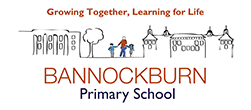Music
Music
Head of Department: Mr Christmas PChristmas@woolwichpolyboys.co.uk
A successful Poly Musician will have open ears and an open mind. They will study music to build confidence through performance and to develop self-discipline through rehearsal and preparation; a successful Poly Music student will know that good use of preparation time is essential to success in all areas of life. He will show team-working skills and will develop the confidence to lead when he feels he can. He will be empathetic and respectful and allow himself and others to make mistakes as part of the process of improving. He will be willing to offer ideas and to try things out and to be honest but kind when evaluating his own and others’ work. He will realise that listening skills are like muscles - they need to be used and exercised in order to grow, and he will realise that listening is the fundamental skill of a musician. We study Music to develop transferable skills that we will inevitably use in all other areas of our learning, tapping into multiple skill sets often simultaneously, but a successful Poly Music student may not realise this because he is too busy having fun.
Key stage 3
- Music as a language - using an integrated, practical approach, students build up their musical skills and confidence through vocal copy-back and improvisation sessions.
- Transferring to instruments- using an aural approach, students learn to transfer sung parts onto instruments (trumpets/trombones/keyboards). This is based around at least 2 different songs, “Shackles” and “Soweto” and involves instrument specific techniques.
- Improvisation into composition- Students gain confidence in creating short improvisations within a given framework through scaffolded and progressive activities. They then isolate parts of the improvisations that they like and want to keep and devise graphic style notation to remember their work.
- Integrating arrangement – Students learn parts of a song vocally (currently “Work” by Rihanna) such as bass line, melody, counter melody, chords. They transfer these to keyboards and work as pods to create original arrangements. This is revisited later using a more complex song (currently “Price Tag” by Jessie J)
- Transferring to music technology - Having learnt the parts, students are shown how to transfer the parts to music technology and are shown some production techniques to help create their own individual version of the song, including improvisation sections.
- Musical detectives – students use their ears and a series of clues and video guides to help them recreate pieces of music using technology.
support materials and useful links
Resources on Microsoft teams
Garageband or Logic for ipad/mac or any music sequencing software to use at home
Key stage 4
Level 2 Vocational Award in Performing Arts (Technical award – through Music Technology)
Assessment
Controlled assessment and coursework
support materials and useful links
Ableton Live/Garageband or any music sequencing software to use at home.
department information
Any specialist equipment required?
Ableton Live 11 or any music sequencing software to use at home is an advantage but not essential.
Enrichment opportunities
Composing for and taking part in public performance
Clubs or Interventions
Samba band; wind band; Brasshoppers; drum kit lessons; brass lessons; woodwind lessons; guitar lessons.
Future careers/uni courses.
You might consider AS and A2 in Music Technology and then a university course.
There are lots of higher education courses for music or any aspect of music technology.
Career Routes
Jobs in the music industry:
http://www.bbc.co.uk/music/introducing/advice/whatdotheseguysdo/
http://musicians.about.com/od/otherindustrycareers/u/IndustryJobs.htm
Social, Moral, Social, Cultural (SMSC) and British Values
Democracy & Mutual Respect - Students are strongly encouraged to work as teams and the main teaching room is set up with small “pods” of 5 students. An aspect of assessment in KS3 music is teamwork and teachers actively encourage and assess the students’ ability to listen to each other’s ideas and to make democratic decisions as to their merit. Pod arrangements and performances are inherently democratic.
The rule of law – At KS5, students learn about British and international copyright laws and the importance of respecting another’s work and the law of the land.
Individual liberty – the idea of improvisation is key to our KS3 teaching. This ties in with the concept of individuals being able to express themselves freely within a given framework.
Tolerance of those with different faiths and beliefs – students learn that every culture makes music and are encouraged to learn and appreciate what makes different musical cultures the same and yet unique. Students study and make music from most continents during KS3.





